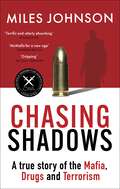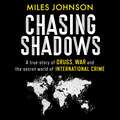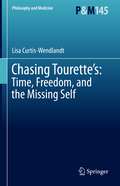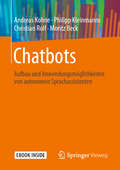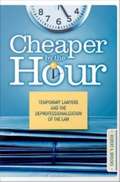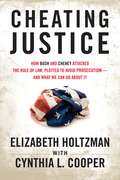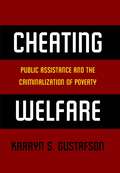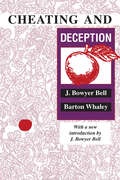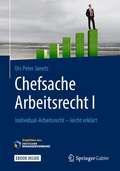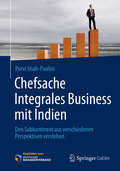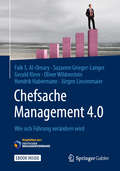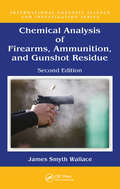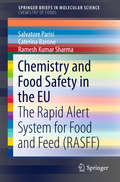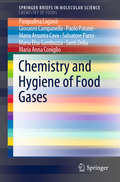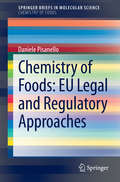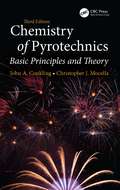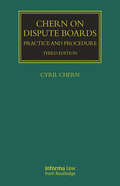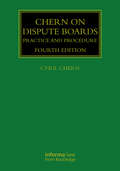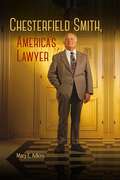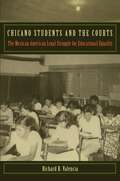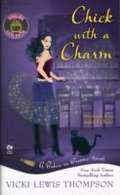- Table View
- List View
Chasing Shadows: A true story of drugs, war and the secret world of international crime
by Miles Johnson'As breathless, complex and on-the-edge suspenseful as the finest thriller fiction - but it's all real, which makes it truly extraordinary' Lee Child'McMafia for the new age' Catherine Belton, author of Putin's People: How the KGB Took Back Russia and then took on the West'Compelling, visceral and highly readable' Oliver Bullough, bestselling author of Moneyland'This astonishing and cinematic rollercoaster of a debut will bring Miles Johnson's talent into the brilliant light. Delivered with trademark verve and precision, it achieves that rare and precious thing that is the goal of all great reporting: it reveals the world to itself' Alex Perry, author of The Good Mothers'Miles has used his extensive Italian contacts to get a fully-fleshed out story in the Mafia section; likewise with the Hezbollah characters. He has interviewed over 100 people for the book, including many hours with Jack Kelly, the DEA investigator and hero of the book, which gives us an intimate look at a man dedicated to catching bad guys at the expense of his personal life' Dan McCrum, author of Money MenA compulsive true crime thriller about modern-day international drugs trafficking, terrorism and geopolitical intrigue following an investigation driven by one DEA agent, Jack Kelly. Three very different men battle to control their destinies as they hurtle through the hall of mirrors of the global shadow economy.Jack Kelly, a veteran US Drug Enforcement Administration agent, tasked with following a trail of dirty money across continents from a top-secret investigative unit based in Virginia.Salvatore Pititto is an ambitious Mafia capo working on a vast cocaine shipment who becomes unexpectedly pulled into an arms-smuggling conspiracy. Mustafa Badreddine is a ghost-like master terrorist wanted by governments across the world who has been secretly dispatched to Syria for his final mission. Each man, born in radically different circumstances in the 1960s, is in his own way grappling with the powerful and unstoppable forces that shape the world around us; forces which topple governments, send refugees fleeing across borders, and put guns in the hands of mercenaries and militias. Each has devoted his whole life to an institution-the DEA, the Mafia and the Lebanese militant group Hezbollah-and each will eventually be destroyed or betrayed by the thing they believe in the most.Set during 2015 and 2016, as the global order began to implode under the pressures of the Syrian civil war and the European refugee crisis, CHASING SHADOWS looks back over the historical conflicts, events and personal histories that have shaped the lives of these three men. It's a book that shows the betrayals, the disillusionment and the violence as Jack Kelly hunts down his targets.
Chasing Shadows: A true story of drugs, war and the secret world of international crime
by Miles Johnson'As breathless, complex and on-the-edge suspenseful as the finest thriller fiction - but it's all real, which makes it truly extraordinary' Lee Child'McMafia for the new age' Catherine Belton, author of Putin's People: How the KGB Took Back Russia and then took on the West'Compelling, visceral and highly readable' Oliver Bullough, bestselling author of Moneyland'This astonishing and cinematic rollercoaster of a debut will bring Miles Johnson's talent into the brilliant light. Delivered with trademark verve and precision, it achieves that rare and precious thing that is the goal of all great reporting: it reveals the world to itself' Alex Perry, author of The Good Mothers'Miles has used his extensive Italian contacts to get a fully-fleshed out story in the Mafia section; likewise with the Hezbollah characters. He has interviewed over 100 people for the book, including many hours with Jack Kelly, the DEA investigator and hero of the book, which gives us an intimate look at a man dedicated to catching bad guys at the expense of his personal life' Dan McCrum, author of Money MenA compulsive true crime thriller about modern-day international drugs trafficking, terrorism and geopolitical intrigue following an investigation driven by one DEA agent, Jack Kelly. Three very different men battle to control their destinies as they hurtle through the hall of mirrors of the global shadow economy.Jack Kelly, a veteran US Drug Enforcement Administration agent, tasked with following a trail of dirty money across continents from a top-secret investigative unit based in Virginia.Salvatore Pititto is an ambitious Mafia capo working on a vast cocaine shipment who becomes unexpectedly pulled into an arms-smuggling conspiracy. Mustafa Badreddine is a ghost-like master terrorist wanted by governments across the world who has been secretly dispatched to Syria for his final mission. Each man, born in radically different circumstances in the 1960s, is in his own way grappling with the powerful and unstoppable forces that shape the world around us; forces which topple governments, send refugees fleeing across borders, and put guns in the hands of mercenaries and militias. Each has devoted his whole life to an institution-the DEA, the Mafia and the Lebanese militant group Hezbollah-and each will eventually be destroyed or betrayed by the thing they believe in the most.Set during 2015 and 2016, as the global order began to implode under the pressures of the Syrian civil war and the European refugee crisis, CHASING SHADOWS looks back over the historical conflicts, events and personal histories that have shaped the lives of these three men. It's a book that shows the betrayals, the disillusionment and the violence as Jack Kelly hunts down his targets.
Chasing Shadows: A true story of drugs, war and the secret world of international crime
by Miles Johnson*** CONTAINS AN EXLUSIVE INTERVIEW WITH THE AUTHOR ***'As breathless, complex and on-the-edge suspenseful as the finest thriller fiction - but it's all real, which makes it truly extraordinary' Lee Child'McMafia for the new age' Catherine Belton, author of Putin's People: How the KGB Took Back Russia and then took on the West'Compelling, visceral and highly readable' Oliver Bullough, bestselling author of Moneyland'This astonishing and cinematic rollercoaster of a debut will bring Miles Johnson's talent into the brilliant light. Delivered with trademark verve and precision, it achieves that rare and precious thing that is the goal of all great reporting: it reveals the world to itself' Alex Perry, author of The Good Mothers'Miles has used his extensive Italian contacts to get a fully-fleshed out story in the Mafia section; likewise with the Hezbollah characters. He has interviewed over 100 people for the book, including many hours with Jack Kelly, the DEA investigator and hero of the book, which gives us an intimate look at a man dedicated to catching bad guys at the expense of his personal life' Dan McCrum, author of Money MenA compulsive true crime thriller about modern-day international drugs trafficking, terrorism and geopolitical intrigue following an investigation driven by one DEA agent, Jack Kelly. Three very different men battle to control their destinies as they hurtle through the hall of mirrors of the global shadow economy.Jack Kelly, a veteran US Drug Enforcement Administration agent, tasked with following a trail of dirty money across continents from a top-secret investigative unit based in Virginia.Salvatore Pititto is an ambitious Mafia capo working on a vast cocaine shipment who becomes unexpectedly pulled into an arms-smuggling conspiracy. Mustafa Badreddine is a ghost-like master terrorist wanted by governments across the world who has been secretly dispatched to Syria for his final mission. Each man, born in radically different circumstances in the 1960s, is in his own way grappling with the powerful and unstoppable forces that shape the world around us; forces which topple governments, send refugees fleeing across borders, and put guns in the hands of mercenaries and militias. Each has devoted his whole life to an institution-the DEA, the Mafia and the Lebanese militant group Hezbollah-and each will eventually be destroyed or betrayed by the thing they believe in the most.Set during 2015 and 2016, as the global order began to implode under the pressures of the Syrian civil war and the European refugee crisis, CHASING SHADOWS looks back over the historical conflicts, events and personal histories that have shaped the lives of these three men. It's a book that shows the betrayals, the disillusionment and the violence as Jack Kelly hunts down his targets.
Chasing Tourette’s: Time, Freedom, and the Missing Self (Philosophy and Medicine #145)
by Lisa Curtis-WendlandtThis book offers a philosophical perspective on contemporary Tourette Syndrome scholarship, a field which has exploded over the last thirty years. Despite intense research efforts on this common neurodevelopmental condition in the age of the brain sciences, the syndrome’s causes and potential cures remain intriguingly elusive. How does this lack of progress relate to the tacitly operating philosophical concepts that shape our current thinking about Tourette Syndrome? This book foregrounds these tacit concepts and shows how they relate to “big topics” in philosophy such as time, volition, and the self. By tracing how these topics relate to current research on Tourette’s, it invites us to re-think our approach to research and care. Such re-thinking is urgently needed: individuals and families living with Tourette Syndrome remain under-serviced as pharmacological and behavioural therapies provide relief for some but not all who need support. This book highlights what questions we ask and do not ask in contemporary scholarship, thereby surfacing invisible constraints and opportunities in the field. It is of interest to scholars, health professionals, students, and affected families who want to better understand this burgeoning field of research with its conceptual controversies, approaches to aetiology, and directions for new research and improved clinical care.
Chatbots: Aufbau und Anwendungsmöglichkeiten von autonomen Sprachassistenten
by Andreas Kohne Philipp Kleinmanns Christian Rolf Moritz BeckChatbots setzen sich in vielen Bereichen für die Kommunikation mit Kunden, Mitarbeitern und Bürgern durch. Sie beantworten automatisch Anfragen, entlasten Hotlines oder beraten Kunden. In diesem Buch werden die technischen wie auch die sprachlichen Grundlagen von Chatbots ausführlich vorgestellt und anhand von praxisnahen Beispielen erläutert. Weiterhin werden wichtige Aspekte wie Kosten, Akzeptanz und rechtliche Grundlagen beleuchtet. Abschließend wird anhand eines konkreten Beispiels ein Chatbot-Projekt exemplarisch beschrieben.
Cheaper by the Hour: Temporary Lawyers and the Deprofessionalization of the Law
by Brooks Robert A.Recent law school graduates often work as temporary attorneys, but law firm layoffs and downsizing have strengthened the temporary attorney industry. Cheaper by the Hour is the first book-length account of these workers. Drawing from participant observation and interviews, Robert A. Brooks provides a richly detailed ethnographic account of freelance attorneys in Washington, DC. He places their document review work in the larger context of the deprofessionalization of skilled labor and considers how professionals relegated to temporary jobs feel diminished, degraded, or demeaned by work that is often tedious, repetitive, and well beneath their abilities. Brooks documents how firms break a lawyer's work into discrete components that require less skill to realize maximum profits. Moreover, he argues that information technology and efficiency demands are further stratifying the profession and creating a new underclass of lawyers who do low-end commodity work.
Cheating Justice
by Elizabeth Holtzman Cynthia L. CooperPresident George W. Bush and Vice President Cheney deceived Congress and the people to drive us into a war in Iraq; they claimed the right to wiretap illegally and to eavesdrop on citizens; and they authorized torture, unilaterally upending laws and violating international treaty obligations. Yet, both Bush and Cheney are audaciously unapologetic about their crimes. In his recent memoir, President Bush makes no apologies for his decision to start a war in Iraq, though no weapons of mass destruction, the ostensible reason for the war, were found there. Regarding his approval of the waterboarding form of torture, he proudly said, "Damn right." Time and again throughout his term, President Bush proclaimed sternly "we do not torture." However, the 2009 release of secret torture documents revealed otherwise. The documents paint a bleak picture of the involvement of President Bush, Vice President Cheney, and top administration officials in unleashing, sanctioning, and conspiring in the infliction of torture. Holtzman and Cooper cite unlawful torture as only one of the many ways that the Bush-Cheney administration transgressed the law, trampled the Constitution, and harmed the image of the United States around the world. Bush and Cheney, the authors argue, authorized and condoned behavior and practices that starkly violate human-rights principles and the rights of American citizens. Congress chose not to pursue impeachment, despite multitudes of citizens advocating for it, Holtzman and Cooper among them. New revelations, however, about the extent and depth of their crimes make the need for accountability imperative. Holtzman posits that the failure to indict, prosecute, or hold accountable officials at the highest level makes a mockery of U.S. law and sets frightening precedents. With Holtzman's legal expertise and Cooper's bold journalism, Cheating Justice explains why the nation needs to address the Bush-Cheney administration's abuse of power and manipulation of the law. As a member of Congress and part of the committee that investigated and held hearings on the conduct of President Richard Nixon in the Watergate scandal, Elizabeth Holtzman balks at Bush's echo of Nixon's claim that he was acting in the interest of national security. Using Watergate-era reforms as a model, Holtzman details the steps necessary to undo the damage that the Bush-Cheney administration inflicted and explains how we can establish new protections that will block future presidents from similarly abusing the law. Cheating Justice is a call to empower the American people, and a firm insistence that the nation's leaders are not above the law.
Cheating Welfare: Public Assistance and the Criminalization of Poverty
by Kaaryn S. GustafsonOver the last three decades, welfare policies have been informed by popular beliefs that welfare fraud is rampant. As a result, welfare policies have become more punitive and the boundaries between the welfare system and the criminal justice system have blurred—so much so that in some locales prosecution caseloads for welfare fraud exceed welfare caseloads. In reality, some recipients manipulate the welfare system for their own ends, others are gravely hurt by punitive policies, and still others fall somewhere in between.In Cheating Welfare, Kaaryn S. Gustafson endeavors to clear up these gray areas by providing insights into the history, social construction, and lived experience of welfare. She shows why cheating is all but inevitable—not because poor people are immoral, but because ordinary individuals navigating complex systems of rules are likely to become entangled despite their best efforts. Through an examination of the construction of the crime we know as welfare fraud, which she bases on in-depth interviews with welfare recipients in Northern California, Gustafson challenges readers to question their assumptions about welfare policies, welfare recipients, and crime control in the United States.
Cheating and Deception
by Barton Whaley J. Bowyer BellCheating and deception are terms often used but rarely defined. They summon up unpleasant connotations; even those deeply involved with cheating and deception rationalize why they have been driven to it. Particularly for Americans and much of Western civilization, official cheating, government duplicity, cheating as policy, and conscious, contrived deception, are all unacceptable except as a last resort in response to threat of extinction. As a distasteful tool, deception is rarely used to achieve national interests, unless in relation to the deployment of military force. As an area of study, it has by and large been ignored.Intrigued by attitudes toward cheating and deception, the authors decided to analyze its roots, structure, and process. They asked fundamental questions: are there categories of deception, general steps in the process of deception, and ways to evaluate its results across time and in different modes? The book that results is a typology of kinds of deception, beginning with military deception, but extending into other categories and stages.In his introduction to this new edition, Bell outlines how the book came to be written, describes the mixed emotions toward the subject displayed by govenmental and nongovernmental funding sources, and speculates about its critical and commercial reception. He discusses widespread new interest in the subject, the research that has been undertaken since this book was first published, and its limitations.This book provides a general overview of this complex subject, creating a framework for analysis of specific instances of cheating or deception. It will be of particular interest to political scientists, those interested in military affairs and strategy, and psychologists. The general reader will find the book written with a light touch, drawing examples of cheating and deception in the pursuit of love and money. The specialist reader will be intrigued by its broad-ranging examples drawn from policy and politics,
Cheating and Deception
by J. Bowyer BellCheating and deception are terms often used but rarely defined. They summon up unpleasant connotations; even those deeply involved with cheating and deception rationalize why they have been driven to it. Particularly for Americans and much of Western civilization, official cheating, government duplicity, cheating as policy, and conscious, contrived deception, are all unacceptable except as a last resort in response to threat of extinction. As a distasteful tool, deception is rarely used to achieve national interests, unless in relation to the deployment of military force. As an area of study, it has by and large been ignored.Intrigued by attitudes toward cheating and deception, the authors decided to analyze its roots, structure, and process. They asked fundamental questions: are there categories of deception, general steps in the process of deception, and ways to evaluate its results across time and in different modes? The book that results is a typology of kinds of deception, beginning with military deception, but extending into other categories and stages.In his introduction to this new edition, Bell outlines how the book came to be written, describes the mixed emotions toward the subject displayed by govenmental and nongovernmental funding sources, and speculates about its critical and commercial reception. He discusses widespread new interest in the subject, the research that has been undertaken since this book was first published, and its limitations.This book provides a general overview of this complex subject, creating a framework for analysis of specific instances of cheating or deception. It will be of particular interest to political scientists, those interested in military affairs and strategy, and psychologists. The general reader will find the book written with a light touch, drawing examples of cheating and deception in the pursuit of love and money. The specialist reader will be intrigued by its broad-ranging examples drawn from policy and politics,
Cheating, Corruption, and Concealment
by van Prooijen, Jan-Willem and van Lange, Paul A. M. van Prooijen, Jan-Willem van Lange, Paul A. M.Dishonesty is ubiquitous in our world. The news is frequently filled with high-profile cases of corporate fraud, large-scale corruption, lying politicians, and the hypocrisy of public figures. On a smaller scale, ordinary people often cheat, lie, misreport their taxes, and mislead others in their daily life. Despite such prevalence of cheating, corruption, and concealment, people typically consider themselves to be honest, and often believe themselves to be more moral than most others. This book aims to resolve this paradox by addressing the question of why people are dishonest all too often. What motivates dishonesty, and how are people able to perceive themselves as moral despite their dishonest behaviour? What personality and interpersonal factors make dishonesty more likely? And what can be done to recognize and reduce dishonesty? This is a fascinating overview of state-of-the-art research on dishonesty, with prominent scholars offering their views to clarify the roots of dishonesty.
Chefsache Arbeitsrecht I: Individual-arbeitsrecht - Leicht Erklärt (Chefsache)
by Peter Buchenau Urs Peter JanetzDas Chefsache-Buch unterstützt Arbeitgeber und leitende Angestellte mit wichtigen Informationen zu allen Themen des Individualarbeitsrechts. Weit verbreitet ist die Ansicht, dass „der Arbeitnehmer doch sowieso immer gewinnt“ und dass man als Arbeitgeber „ohnehin keine Chance vor Gericht hat“ hat. Doch das muss nicht sein – wenn man sich als Arbeitgeber mit der Thematik rechtzeitig beschäftigt und mit Augenmaß und Wertschätzung an die Materie herangeht. Dafür ist dieses Buch ein hilfreicher Einstieg. Der Text verzichtet komplett auf juristische Fachsprache. Stattdessen vermittelt der Autor die Materie sehr kompakt, verständlich und humorvoll. Zahlreiche Beispielfälle und Info-Boxen verdeutlichen die Zusammenhänge. So werden die Leser schnell für die arbeitsrechtlichen Knackpunkte und Stolpersteine sensibilisiert. Im Anhang werden Mustertexte für einen Arbeitsvertrag, einen Aufhebungsvertrag und eine Abmahnung zur Verfügung gestellt.
Chefsache Integrales Business mit Indien: Den Subkontinent aus verschiedenen Perspektiven verstehen
by Purvi Shah-PauliniDas Buch aus der Chefsache-Reihe zeigt, dass es sich mit langfristigen Strategien und Geduld lohnt, in Gesch#65533;ftsbeziehungen zu Indien zu investieren und diese aufrecht zu erhalten. Die integrale Sichtweise zeigt dabei die #65533;u#65533;eren Einflussfaktoren, wie z. B. Politik und Geschichte, aber auch die inneren Einflussfaktoren, die zum einen von jedem Individuum abh#65533;ngig sind, aber auch dem Umfeld, in dem das Individuum aufw#65533;chst und arbeitet. Mit dem Graves-Value-Modell wird dem Leser ein Werkzeug an die Hand gegeben, das den Wertewandel und die Denkweisen der deutschen und der indischen Kultur verdeutlicht. Damit bietet das Buch interessante und fundierte Einblicke und liefert wertvolle Markteintrittsstrategien f#65533;r deutschsprachige Unternehmen.
Chefsache Management 4.0: Wie sich Führung verändern wird (Chefsache)
by Falk S. Al-Omary Suzanne Grieger-Langer Gerald Kleer Oliver Wildenstein Hendrik Habermann Jürgen LinsenmaierDas Buch aus der Chefsache-Reihe stellt die neuen Herausforderungen an das Management der Zukunft in den Blickpunkt. 6 Experte, alle mit großer Führungserfahrung, stellen sich den wichtigsten Fragen und beantworten, worauf es ankommt.
Chemical Analysis of Firearms, Ammunition, and Gunshot Residue (International Forensic Science and Investigation)
by James Smyth WallaceChemical Analysis of Firearms, Ammunition, and Gunshot Residue, Second Edition continues in the tradition of the popular first edition, filling the void in forensic texts on the subject. While most books on firearms focus solely on the physical aspects of firearms, this book addresses forensic issues relating to the chemical aspects of firearms and ammunition. It draws on the latest published literature including books, scientific papers, technical reports, manufacturer’s literature, newspaper articles, and personal observations and research conducted by the author. This edition is fully updated, introducing the history and development of firearms and ammunition including advances in the chemical analysis of them. Several changes in primer compositions and the particle classification system are addressed with new techniques added on evidence collection and testing methods. Coverage details chemical aspects of forensic firearms casework with particular emphasis on the detection of gunshot residues (GSR), firearm discharge residues (FDR), and cartridge discharge residues (CDR) on a suspect’s skin and clothing surfaces. Two new chapters have been added. One deals with unusual firearms case while the other summarizes a controversial, high-profile Australian case involving inorganic and organic gunshot residue, highlighting the dangers of incorrect forensic evidence and the increased need for careful training of forensic scientists. Fully updated to reflect the latest techniques and tests for particle and chemical classification Provides a complete history of firearms and ammunition development as well as advances in the chemical analysis involved in forensic firearm casework Features a one-of-a-kind chapter on processing suspects, a crucial component in many firearms and explosives residue cases The book will serves as a useful to forensic chemists, investigators, ballistics experts, among other professionals serving in a variety of forensic disciplines.
Chemistry and Food Safety in the EU: The Rapid Alert System for Food and Feed (RASFF) (SpringerBriefs in Molecular Science)
by Salvatore Parisi Caterina Barone Ramesh Kumar SharmaThis Brief provides a general description of the European Rapid Alert System for Food and Feed (RASFF). It describes the RASFF approach on the legal level and with reference to notification procedures, including also new tools, which were launched in 2014: iRASFF and the RASFF Consumer Portal. In an introduction, the present status of the RASFF, which had originally been introduced in 1979, is briefly reviewed. It is described as the main basis of modern food policy in Europe, enabling member countries to take rapid corrective actions on the one hand, and to perform statistically reliable analyses of food-related hazards on the other hand. One chapter contains a statistical evaluation of RASFF notifications in general, and specifically with regard to chemical contaminants, including also allergens. In another chapter, reasons for rejections of food and feed at the European borders are analyzed in selected case studies. The Brief provides an easy description for the chemical dangers and contaminants it is referring to, outlining the names, properties, uses and importance in the food and feed industry, toxicological effects, and contamination sources. The last chapter offers an outlook on the future of the RASFF and possible expectations.
Chemistry and Hygiene of Food Additives (SpringerBriefs in Molecular Science)
by Salvatore Parisi Pasqualina Laganà Emanuela Avventuroso Giovanni Romano Maria Eufemia Gioffré Paolo Patanè Umberto Moscato Santi DeliaThis brief addresses important aspects of food additives. Through four chapters, the authors describe the chemistry of food additives, the regulatory classification of additives on a large-scale, the risks involved in using chemicals for food preparation - including implications this has on food hygiene, and case-study examples taken from the dairy industry. More specifically, chapter one provides a list of the technological purposes of food additives defined for European use; chapter two explains the 'General Standards for Food Additives' (Codex Alimentarius Commission) which is a harmonised, workable and indisputable international standard; chapter three describes the use of selected food additives in the dairy sector, particularly with relation to the production of yoghurt products; and chapter four addresses the impact of additives on human health. This brief is of interest to researchers working in the area of food production and international regulation, both in academia and industry.
Chemistry and Hygiene of Food Gases (SpringerBriefs in Molecular Science)
by Salvatore Parisi Pasqualina Laganà Paolo Patanè Santi Delia Maria Anna Coniglio Giovanni Campanella Maria Assunta Cava Maria Elsa GambuzzaThis book focuses on the use of food gases in the food industry, their different applications and their role in food processing, packaging and transportation. Since these gases come into contact with food, they must comply with strict of labeling, purity and hygiene standards in order to ensure food safety.The book discusses various implications of food gases in the food chain, providing examples of how they can be used to limit food waste and losses. The first two chapters examine the classification and role of food gases in Europe, and the third chapter then explores the chemical and physical features of commonly used food gases in the food and food packing industries. The fourth chapter highlights the impact of food gases on human health due to their possible abuse and misuse. This book appeals to researchers and professionals working in food production and quality control.
Chemistry of Foods: Eu Legal And Regulatory Approaches (SpringerBriefs in Molecular Science)
by Daniele PisanelloThis book concerns the EU legal and regulatory framework relating to Chemicals in Food. It is divided in two parts: the first section offers an introduction to the European General Food Law with an analysis of EFSA (the European Food Safety Authority) and a description of main features of food safety-related regulations. The second part focusses on the legislation finding application concerning chemicals in food from different viewpoints, namely: - the REACH regulation; - the enzyme, flavorings and additive regulatory framework; - the matter of contamination and veterinary drugs; - the use of Food contact materials. The final chapter addresses several considerations relating to chemical hazards and crisis management, highlighting shortcomings and lessons from experience.
Chemistry of Pyrotechnics: Basic Principles and Theory, Third Edition
by Chris Mocella John A. ConklingThis book provides chemists with technical insight on pyrotechnics and explosives. It emphasizes basic chemical principles and practical, hands-on knowledge in the preparation of energetic materials. It examines the interactions between and adaptations of pyrotechnics to changing technology in areas such as obscuration science and low-signature flame emission. The updated third edition discusses chemical and pyrotechnic principles, components of high-energy materials, elements of ignition, propagation, and sensitivity. It offers heat compositions, including ignition mixes, delays, thermites, and propellants and investigates the production of smoke and sound as well as light and color.
Chern on Dispute Boards: Practice And Procedure (Construction Practice Series)
by Cyril ChernChern on Dispute Boards examines the law of dispute boards and their development internationally, while also covering procedural topics that are of particular concern to those utilising dispute boards. It deals with advanced practitioner issues in the emerging law of dispute boards on an international scale, laying out their methods and methodology not only under the common law, but also under other legal systems such as Civil law and Shari’ah law. Excelling in describing the "how and why", this book also gives samples and/or forms of actual working dispute boards that any practitioner could use and adapt to their own needs. Readers of this this updated third edition will have explained to them the various international formats and types of dispute boards in use today and be brought up-to-date on the ever evolving law within the field. New to this 3rd edition is the extensive coverage of appeals from Dispute Board Decisions, the laws relative to appeals and the ICC, enforcement procedures and new forms and guidelines for the practitioner. This book guides the reader through the complexities of actual commercial and construction disputes and their successful resolution and also presents a way forward for the dispute board members themselves to administer actual dispute boards all over the world. It is therefore, the number one guide for construction lawyers, engineers and dispute board stakeholders worldwide.
Chern on Dispute Boards: Practice and Procedure (Construction Practice Series)
by Cyril ChernChern on Dispute Boards examines the law of dispute boards and their development internationally, while also covering procedural topics that are of particular concern to those utilising dispute boards. It deals with advanced practitioner issues in the emerging law of dispute boards on an international scale, laying out their methods and methodology not only under the common law, but also under other legal systems such as Civil law and Shari’ah law. Excelling in describing the "how and why", this book also gives samples and/or forms of actual working dispute boards that any practitioner could use and adapt to their own needs. This updated fourth edition explains the various international formats and types of dispute boards in use today and brings readers up-to-date on the ever-evolving law within the field. The text guides the reader through the complexities of actual commercial and construction disputes and their successful resolution and also presents a way forward for the dispute board members themselves to administer actual dispute boards all over the world. This book is essential reading for construction lawyers, engineers and dispute board stakeholders worldwide.
Chesterfield Smith, America's Lawyer
by Mary E. AdkinsChesterfield Smith spearheaded the American Bar Association’s condemnation of Richard M. Nixon during the Watergate scandal. Smith’s damning statement “No man is above the law” turned him into a national figure. But his outsized accomplishments, and equally outsized personality, had already made the Florida attorney a legend in his home state.Mary Adkins’s biography follows the epic life of a person driven by the motto “do good.” A child of the rural South turned war hero, Smith put himself through law school and rose fast to lead the Florida Bar and mastermind the drafting of a new state constitution. At the same time, he grew his small firm into Holland & Knight, a legal leviathan he imbued with his own sense of public duty. His idealism further manifested in his hiring of women and people of color while his expansive professional network led to a close friendship with future Supreme Court justice Ruth Bader Ginsburg. Adkins also examines Smith’s mentoring of several outstanding legal figures and the community service organizations still influenced by his humane vision of the law.Fully realized and long overdue, Chesterfield Smith, America’s Lawyer illuminates the complexities of a defining Florida figure who became a legal giant.
Chicano Students and the Courts: The Mexican American Legal Struggle for Educational Equality (Critical America #50)
by Richard R ValenciaIn 1925 Adolfo ‘Babe’ Romo, a Mexican American rancher in Tempe, Arizona, filed suit against his school district on behalf of his four young children, who were forced to attend a markedly low-quality segregated school, and won. But Romo v. Laird was just the beginning. Some sources rank Mexican Americans as one of the most poorly educated ethnic groups in the United States. Chicano Students and the Courts is a comprehensive look at this community’s long-standing legal struggle for better schools and educational equality. Through the lens of critical race theory, Valencia details why and how Mexican American parents and their children have been forced to resort to legal action.Chicano Students and the Courts engages the many areas that have spurred Mexican Americans to legal battle, including school segregation, financing, special education, bilingual education, school closures, undocumented students, higher education financing, and high-stakes testing, ultimately situating these legal efforts in the broader scope of the Mexican American community’s overall struggle for the right to an equal education. Extensively researched, and written by an author with firsthand experience in the courtroom as an expert witness in Mexican American education cases, this volume is the first to provide an in-depth understanding of the intersection of litigation and education vis-à-vis Mexican Americans.
Chick with a Charm (Babes on Brooms #2)
by Vicki Lewis ThompsonIgnoring a witch is never wise. Lily Revere is free-spirited and fun-loving--two dangerous qualities in a witch. Especially one who is planning her sister's engagement party--and who needs a date! She's determined to bring hot Griffin Taylor, but he's a divorce lawyer who claims his job has warned him off romance. He may pretend he's just not into her, but she knows better--he needs only a nudge in the right direction. Slipping a love elixir into Griffin's drink may not be the noble thing to do, but it sure works! Lily's dreamboat drops all his defenses, and the two discover they're perfectly matched in every way. There's just one problem: Are Griffin's feelings the result of some truly good witchcraft, or is he really in love?
